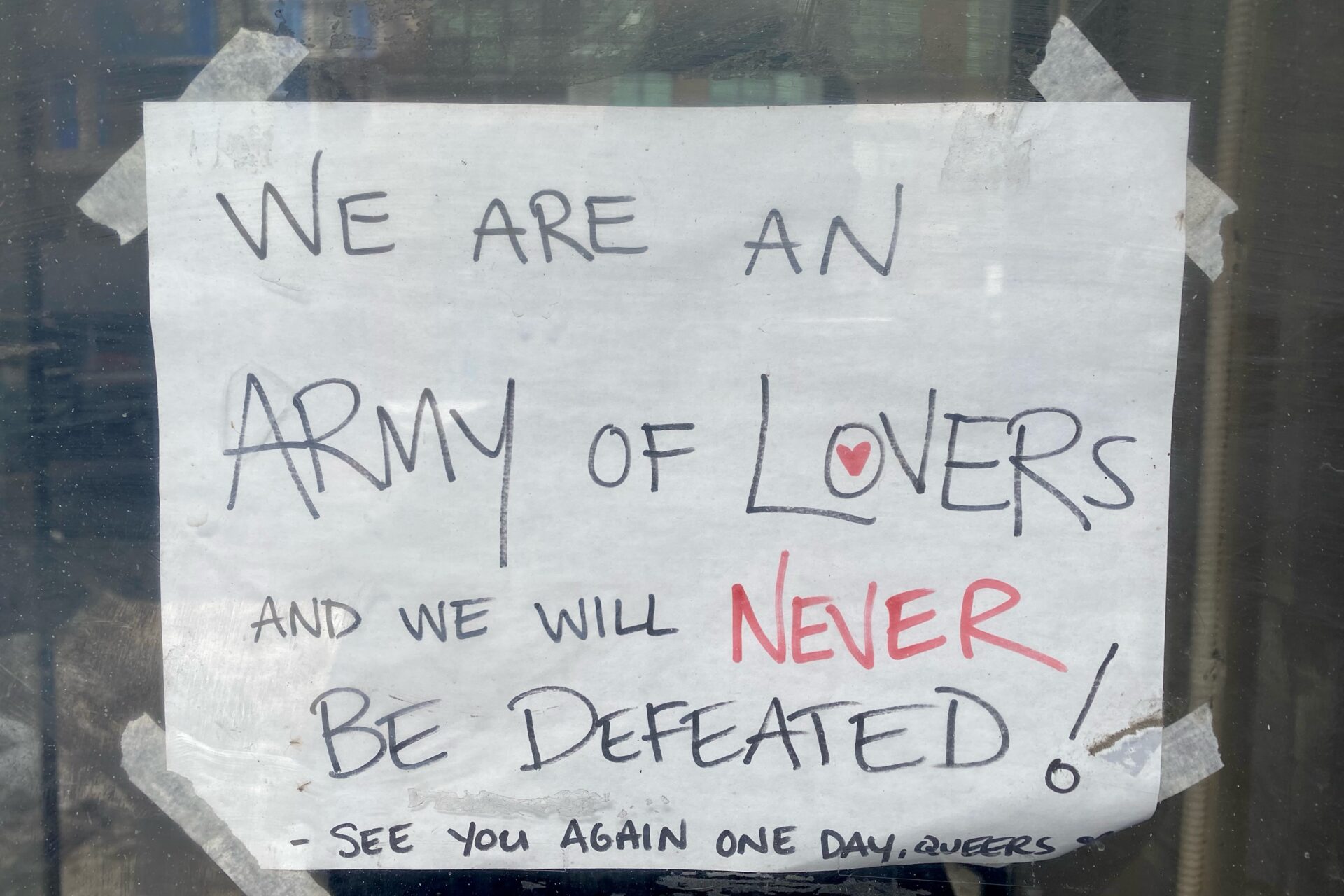“You go and you walk into this room and you’re like – oh, here are my people. They’re not in the village, they’re here.”
Phil Villeneuve is a queer DJ, promoter, and cultural organizer in Toronto’s west end, which is the home of the city’s alternative queer scene. Over the years, bars there have catered to queer women, trans folks, and queer people of colour; in short, all of the people who often feel alienated by the predominantly white and masculine-dominated spaces in Toronto’s well-known gay village at Church and Wellesley.
Keeping these spaces alive and thriving has never been easy, but the west end has a long history of resilience. However, the current wave of COVID-19, combined with the lack of government support for queer businesses and performers, is pushing that resiliency to its limits.
“I know a lot of performers where performing was their main source of income,” said Imarra, a drag performer who hosts weekly drag nights at Nightowl, a bar on College Street.
Drag performers and queer bars are the lifeblood of the west end scene. Both have been hit hard by the financial strain of the pandemic.
The summer and fall of 2021 saw a major comeback for west end bars after a difficult winter. Performers and organizers were hopeful that venues could keep operating indoors with reduced capacities.
However, the arrival of the Omicron variant in Canada changed all that. When the Ontario government closed indoor dining on January 5, queer bars and drag performers suffered huge losses of income.
“People are scared for sure,” said Bombae, a drag queen and frequent host of outdoor drag shows at Sweaty Betty’s on Ossington. “People are so scared about how they’re going to pay bills for February and March.”
For Jay Deszeld, the former co-manager of The Beaver and a current employee at Sweaty Betty’s, the pandemic has only exacerbated a pre-existing problem.
“The biggest difficulty to running any queer or alternative establishment is that you don’t have access to mass market money,” said Deszeld. “You’re catering to a group of people who unfortunately don’t have a lot of money on average.”
Jack Gieseking, author of A Queen New York: Lesbians, Dykes, And Queers, has studied the ways that queer people struggle to buy and hold onto space in cities. To them, the frequent closures aren’t the whole story.
“It felt to me that this kind of constant sadness and loss in spaces was masking the constant labour and connection and community… that my participants took a lot of their identify from.”
Toronto’s west end is no different. Despite the uncertainty of the coming months, the prevailing sentiment amongst folks who’ve made the west end home is that the queer scene is not going anywhere.
“The city and the way things are going with all these venues shutting down is forcing us back into the underground,” said Villeneuve. “But from the underground bubbles up the most amazing magical stuff.”
To hear more, including whether to expect fake blood or ranch dressing in a west end drag show, listen to the segment below:









